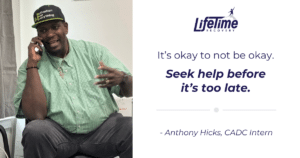By far one of the most important things that rehab and treatment centers teach those who are suffering from addiction is how to avoid relapse once they leave and return to their regular lives. Relapse prevention coping skills are essential to remaining clean and sober after leaving treatment. It can also be the toughest part to deal with for a newly sober person.
For someone who has spent a significant amount of time living at a treatment center, their first instinct might be to try and return to as normal of a life as possible, similar to the life they were living before they went to treatment. While that sense of normalcy might help the transition process, it can also result in returning to environments and situations where the person used in the past.
This is why developing those relapse prevention techniques while in treatment is so important. Let’s take a deeper look at relapse as a whole as well as discuss the importance of relapse prevention skills and some of the things that you can do to actively prevent relapse in the future.
What Is Relapse?
Simply put, relapse occurs when someone who is sober from drugs or alcohol finds themselves engaging in those substances again. While it might seem like one sip of alcohol or taking one pill won’t do any harm, sometimes it’s just that one time that is all that is needed for that person to spiral right back into substance abuse and addiction. While the ultimate goal is to never relapse, unfortunately, it is something that happens amongst those who are in recovery.
While the potential fear of relapse is something that those who are in recovery might always have to deal with, it also doesn’t have to prevent them from living their life. That’s why the coping and prevention skills learned in rehab are so vital to the overall success rate of a person who is in recovery staying sober, especially during those early stages of sobriety.
What Can Cause A Relapse?
There are a number of situations that can trigger someone to want to use again. After all, everyone is different and therefore their situations are different. That being said, there are certain things that are common when it comes to relapse triggers. Some of the most common triggers when it comes to the possibility of relapse include:
- Anger
- Stress
- Boredom
- Money problems
- Relationship problems
- Certain triggers including places, sights, smells, or people
- Falling back into old habits or patterns
While it’s important not to turn into a shut-in and never leave your house when you leave rehab, it is also important to put yourself in positive settings while avoiding triggers. It’s best to avoid being around people with whom you drank or used drugs. Also, if you can, avoid the places where you used to use these substances. Finally, make it a habit to steer clear of things that could trigger a relapse. However, if you find yourself in a situation where you can simply not avoid a trigger, that’s where your relapse prevention coping skills come in.
 What Are Some Relapse Prevention Techniques That I Can Try On My Own?
What Are Some Relapse Prevention Techniques That I Can Try On My Own?
Not every relapse prevention technique is going to be effective for everyone. That’s why when it comes to your sobriety it’s important to be honest with yourself when it comes to what does and doesn’t work and what you will respond positively to. That being said, there are some popular relapse prevention techniques that you can try.
The most important technique is to take care of yourself and your needs. Re-entering society after rehab can be an overwhelming and stressful time. Your mind and body are experiencing a lot of changes and your world as you once knew it has been flipped upside down (or in this case turned right side back up). Actively doing things to take care of both your mind and your body can go a long way when it comes to avoiding any temptations that may arise to use again. This includes:
- Exercising
- Deep breathing
- Practicing yoga or meditation
- Getting the proper amount of sleep
- Eating a proper and well-balanced diet
What Happens If I Relapse?
While you might think you are a failure if you relapse and think that your time in treatment was a waste, it’s important to remember that addiction is a disease and that you’re human. The good news too is that just because you relapsed doesn’t automatically mean that you have to go back to rehab either.
If you experience a situation where you relapse it is crucial that you are honest with yourself. Taking a sip of alcohol or taking a pill one time doesn’t automatically mean you are going to spiral out of control. It does, however, represent an issue that needs to be addressed.
You need to reflect and try and understand what happened that led to your relapse. Did you fail to use any of your prevention strategies? Did you try using them and they failed? If, after reflection, you decide that you need to go back into treatment then you can certainly do that. Or, you might feel that all you really need to do is go talk to someone or go to a meeting. The key is to be honest with yourself and identify what the best strategy is for you.
Want To Know More About Relapse Prevention Coping Skills?
Relapsing is not a sign of failure, even if it feels like it. It’s part of the overall recovery process and can even teach you valuable lessons for the future. The same can be said for returning to treatment if necessary.
At Lifetime Recovery, we understand that relapse is a part of life. That’s why we offer our services not just to someone who is entering treatment for the first time, but also for those who might have experienced a relapse and need to return. If you or someone you know is suffering from addiction and could benefit from treatment, contact us today.

 What Are Some Relapse Prevention Techniques That I Can Try On My Own?
What Are Some Relapse Prevention Techniques That I Can Try On My Own?

